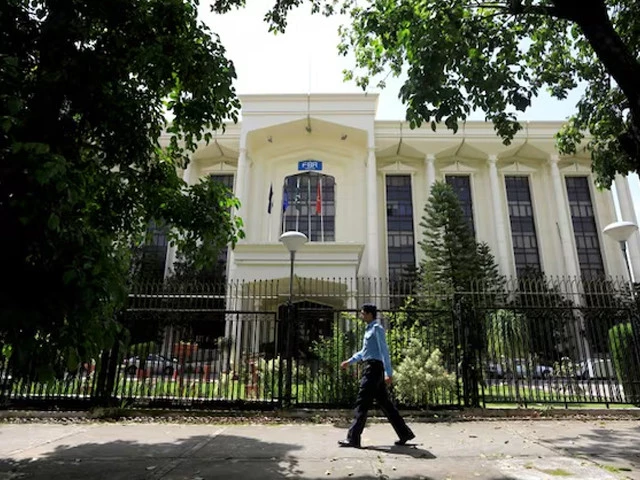Business
RFK Jr.’s vaccine panel weakens Covid shot recommendations, calling it an individual decision

Members of the Advisory Committee on Immunization Practices listen to a presentation about Covid-19 during an ACIP meeting at the Centers for Disease Control and Prevention in Atlanta, Sept. 19, 2025.
Alyssa Pointer | Reuters
Health and Human Services Secretary Robert F. Kennedy Jr.’s hand-picked vaccine panel on Friday weakened Covid shot recommendations in the U.S., advising that all Americans consult a health-care provider before deciding whether to receive the vaccine.
The 12-member panel, called the Advisory Committee on Immunization Practices, or ACIP, recommended that people 6 months and up receive vaccines based on so-called “shared clinical decision-making,” which refers to a decision process between a health-care provider and a patient or their guardian. The group also voted to emphasize that for those under 65, the Covid vaccine is most beneficial for those at high risk of severe illness from the disease.
The guidance breaks from previous years, where the committee recommended that all Americans ages 6 months and up receive an updated Covid shot.
While ACIP did not restrict the use of the Covid vaccine, the panel’s softer recommendation may further confuse Americans about whether to take a shot and make it more difficult for them to access one. ACIP sets recommendations on who should receive certain shots and which vaccines insurers must cover at no cost.
The panel’s chair, Martin Kulldorff, said it was his understanding that the new recommendation means that government-run insurance plans will still cover Covid vaccines. But it’s unclear if all private health plans will maintain coverage of the shots.
The CDC, whose latest director was ousted by the Trump administration earlier this month, still has to adopt the panel’s recommendations.
The vote is no surprise, as Kennedy appointed several vocal critics of mRNA Covid shots to the panel after ousting all previous members in June. During the meeting Friday, some members cast doubt on the safety and efficacy of Covid shots and mRNA technology, and questioned the reliability of data on hospitalization rates due to the virus.
Massachusetts Institute of Technology professor Retsef Levi speaks during an Advisory Committee on Immunization Practices meeting at the Centers for Disease Control and Prevention in Atlanta, Sept. 19, 2025.
Alyssa Pointer | Reuters
It also follows Kennedy’s other recent moves to change U.S. Covid vaccine policy, which have created new hurdles for some people to access vaccines, including prescription requirements in certain states. The CDC dropped Covid shot recommendations for healthy children and pregnant women, and the Food and Drug Administration approved new Covid jabs with limits on who can get them.
The ability to get vaccines may vary by state: In a break from federal guidelines, four Democratic states on Wednesday recommended that broad swaths of the population receive an updated Covid shot, including “all who choose protection.” Still, the new recommendations could weaken vaccination rates against the virus and heighten the threat of the disease spreading.
A study published Thursday in JAMA Network Open showed that sticking to a universal Covid vaccine recommendation in the U.S., the guidance that has been in place in recent years, has the potential to prevent thousands more hospitalizations and deaths than limiting the advisory to high-risk groups.
Numerous studies have demonstrated that shots using mRNA technology, including Covid vaccines from Pfizer and Moderna, are safe and effective, and serious side effects have happened in extremely rare cases. One paper in August estimates that Covid vaccines saved more than 2 million lives, mostly among older adults, worldwide between 2020 and October 2024.
In a statement Friday, Pfizer said the company and its partner BioNTech “remain steadfast in our dedication to vaccine safety, quality and effectiveness through constant safety monitoring and ongoing research.”
One major health insurance group on Wednesday said its member plans will cover all vaccines already recommended by ACIP, including updated Covid and flu shots, despite any changes the new slate of appointees makes this week. Member plans of the group, America’s Health Insurance Plans, collectively provide coverage and services to over 200 million Americans. That includes more than a dozen Blue Cross Blue Shield plans, Centene, CVS‘ Aetna, Elevance Health, Humana, Kaiser Permanente, Molina, and Cigna.
Debating Covid vaccines
One ACIP member, Retsef Levi, a professor of operations management at the Massachusetts Institute of Technology, led a work group that reviewed data and proposed recommendations around Covid vaccines. Levi’s presentation on the group’s findings questioned the safety and efficacy of Covid shots and cast doubt on mRNA technology.
“We have a range of things on the mRNA platforms that really suggest that it doesn’t work as intended,” said Levi, who has previously pushed to stop giving mRNA shots.
He said the majority of the work group felt that individual decisions on whether to receive a Covid vaccine are “appropriate” and specifically, that people should now have to obtain prescriptions for the shot. “You get to a level of nuance” where some patients may have recent prior infections or different comorbidities that should be discussed with a physician as part of a prescription, Levi said.
But one work group member, Dr. Henry Bernstein, said during another presentation that “shared clinical decision-making and a need for a prescription creates barriers” to Covid vaccine access.
“Simple, stable recommendations can increase vaccine coverage,” said Bernstein, a professor of pediatrics at Zucker School of Medicine at Hofstra/Northwell. “Covid-19 vaccines are highly safe and effective.” He is not a member of Kennedy’s panel who votes on recommendations.
“Covid-19 vaccination matters for pregnant women, pediatric patients, especially those less than two years of age, people 65 years and older, those of any age with a weakened immune system, medical conditions, and anyone who feels they want protection for themselves or their families,” he said.
Business
Retailer Quiz becomes latest firm to hit the wall with 109 jobs axed

Fashion retailer Quiz has become the latest firm to collapse into administration with 109 head office and warehouse staff being made redundant and hundreds more at risk.
Administrators Interpath said the chain’s 40 stores across the UK and seven concessions in Ireland will continue to trade while they look at options for the firm but its website will shut.
They said 109 redundancies are being made across the firm’s head office in Glasgow and its warehouse and distribution centre in Bellshill, Lanarkshire.
Interpath confirmed that Quiz concessions in New Look and Matalan stores in the UK are not included in the administration and remain unaffected.
Quiz employs 565 workers in total.
It marks the second time Quiz has fallen into administration in a year, having collapsed in February 2025 before immediately being bought in a so-called pre-pack deal by a subsidiary of the founding Ramzan family.
The deal at the time saw Orion buy a raft of assets, including the Quiz brand and 42 of its shops, but 23 stores were shut in a move affecting 200 jobs.
Alistair McAlinden, head of Interpath in Scotland and joint administrator, said: “With Quiz the latest retailer to fall into administration, there’s no doubt it’s been a tough start to 2026 for the UK high street.
“It’s our intention to continue to trade all stores and the concessions in Ireland as a going concern for as long as we can while we assess options for the business.”
Geoff Jacobs, fellow joint administrator and managing director at Interpath, added: “Any parties with an interest in acquiring the stock, store operations and infrastructure of Quiz should contact us as a matter of urgency.
“We are ensuring that those employees impacted by redundancy are provided with all available support at this difficult time.”
Interpath said Quiz had suffered amid tough trading conditions over the past year, with sales weaker than expected over the crucial Christmas season.
“In addition, Quiz had to contend with strong economic headwinds including changing consumer habits, cost pressures from business rates and the recent increases to employment costs,” it added.
The firm looked at options to secure its future, including additional funding, but efforts failed, according to Interpath.
The administrators confirmed gift cards and credit notes will no longer being accepted, while those with online returns will need to do so in a Quiz store for exchange, but cannot receive cash or card refunds.
Shoppers who have made returns online but not received the money will “regrettably, not receive a refund from Quiz”.
Customers should contact the provider of the credit or debit card which was used for the payment and ask for assistance.
Business
Peloton posts weak holiday quarter after splashy product overhaul fails to land

Peloton posted a worse-than-expected holiday quarter on Thursday after shoppers failed to shell out for its new AI-driven product line and turned away from higher subscription prices.
The connected fitness company missed Wall Street’s estimates on the top and bottom lines and fell short of its own internal sales targets in the three months ended Dec. 31 – typically the strongest for Peloton’s hardware revenue.
The company said it expects sluggish sales to continue in the current quarter. Peloton forecasts revenue between $605 million and $625 million, below expectations of $638 million, according to LSEG.
The weak results, coupled with soft guidance, are the first clues investors have that Peloton’s product overhaul may not be the sales driver the company hoped it would be. Peloton’s stock dropped as much as 13% in premarket trading following the results.
The revamped assortment, which came with artificial intelligence-powered tracking cameras, speakers, 360-degree swivel screens and hands-free control, was designed to grow sales and bring in new customers. But Peloton’s results show demand has been sluggish.
While Peloton’s top line might be disappointing to investors, the company is still making gains in improving its profitability. Over the holiday quarter, the company generated $81 million in adjusted earnings before interest, taxes, depreciation and amortization, better than the $73 million analysts had expected, according to StreetAccount.
After it announced plans to lay off 11% of its staff last week, the company expects to generate between $120 million and $135 million in adjusted EBITDA in the current quarter, better than the $119 million analysts had expected, according to StreetAccount.
It raised its full-year adjusted EBITDA guidance to between $450 million and $500 million, up from a prior range of between $425 million and $475 million.
That’s welcome news to investors because it shows Peloton was able to innovate its product line without draining profitability.
Also on Thursday, the company announced CFO Liz Coddington is leaving Peloton to “pursue an opportunity outside the industry.” She’s staying on through March as the company searches for its next finance chief.
Here’s how Peloton did in its fiscal second quarter compared with what Wall Street was anticipating, based on a survey of analysts by LSEG:
- Loss per share: 9 cents vs. 6 cents expected
- Revenue: $657 million vs. $674 million expected
The company’s net loss for the quarter was $38.8 million, or 9 cents per share, a significant improvement from the $92 million, or 24 cents per share, it lost in the year ago period.
Sales fell to $656.5 million, down about 3% from $673.9 million a year earlier.
Since Peter Stern took over as Peloton’s CEO, he’s worked to generate new revenue streams and build on the company’s progress of improving its profitability.
The revamped product assortment was one of his first big moments as CEO and included new prices for both subscriptions and hardware. Despite higher prices, revenue for both hardware and subscription came in lower than expected, indicating unit sales have been weak.
Hardware sales drove $244 million in revenue during the quarter while subscriptions saw $413 million in sales, both below expectations of $253 million and $424 million, respectively, according to StreetAccount.
In a statement, Stern focused on the company’s profitability improvements and said he’s seeing “positive momentum” across the business.
“Our second quarter represented the most substantial period of innovation at Peloton since our founding. At the same time, our financial performance demonstrated our continued operational discipline, resulting in 39% year-over-year growth in Adjusted EBITDA and reducing Net Debt by 52% year-over-year, proving we can simultaneously innovate and increase our profitability,” said Stern. “Our subscription base is highly committed, our integrated Commercial Business Unit is growing and well-positioned to continue doing so, and Member engagement with Peloton IQ is encouraging.”
Business
Telecoms giant loses more than 200,000 broadband customers

Telecoms giant BT has reported a significant slowdown in customer losses, signalling a potential stabilisation within the fiercely competitive broadband market.
The group revealed it shed 210,000 broadband customers during the final three months of 2025.
This figure proved less severe than market expectations, which had predicted losses exceeding 230,000.
Consequently, BT has adjusted its full-year projection for Openreach fixed-line broadband customer losses downwards, now forecasting 850,000, an improvement from its earlier estimate of 900,000.
Simultaneously, the company experienced a notable surge in demand for full-fibre coverage, successfully adding 571,000 new customers in the quarter.
Openreach has contended with customer attrition in recent years, largely due to the rise of low-priced competitors, often termed “retail altnets,” including providers like CityFibre.
However, chief executive Allison Kirkby informed the Press Association that this competitive pressure is now “abating” as BT continues to expand its full-fibre infrastructure across the country.
She said: “We’re building further and faster across the country than anybody else, because we’re getting into the areas where we didn’t previously have fibre.
“Now we have two-thirds of the country on fibre and we’re seeing reduced competition, so the consumer demand is there.”
The telecoms giant reported that revenues fell by 4 per cent to £5 billion in the quarter to December 31 due to service revenue declines.
It was also impacted by lower equipment revenues, largely linked to weakness in handsets, and divestments.
Adjusted UK service revenues fell by 2 per cent to £3.8 billion for the quarter.
Meanwhile, pre-tax profits fell to £183 million for the quarter, compared with £427 million a year earlier, after being hit by £214 million of losses related to its sports joint venture behind TNT Sports.
It runs the joint venture alongside US media giant Warner Bros Discovery, which has been at the centre of a bidding war between rivals Netflix and Paramount Skydance.

BT stressed it was still on track to meet its financial guidance for the current year.
Ms Kirkby said: “BT continues to deliver on its strategy – building and connecting the UK to the best next-generation networks at record pace, while accelerating our transformation.
“Our network leadership strengthened further in the quarter, with full-fibre broadband now reaching more than 21 million homes and businesses, and our 5G+ network accessible to 69 per cent of the population.
“Openreach achieved record full-fibre connections and our consumer division again added customers in broadband, mobile and TV.”
-

 Entertainment1 week ago
Entertainment1 week agoClaire Danes reveals how she reacted to pregnancy at 44
-

 Sports1 week ago
Sports1 week agoCollege football’s top 100 games of the 2025 season
-

 Politics1 week ago
Politics1 week agoTrump vows to ‘de-escalate’ after Minneapolis shootings
-

 Sports1 week ago
Sports1 week agoTammy Abraham joins Aston Villa 1 day after Besiktas transfer
-

 Entertainment1 week ago
Entertainment1 week agoK-Pop star Rosé to appear in special podcast before Grammy’s
-

 Tech1 week ago
Tech1 week agoThe Surface Laptop Is $400 Off
-

 Business1 week ago
Business1 week agoPSX witnesses 6,000-point on Middle East tensions | The Express Tribune
-

 Business1 week ago
Business1 week agoGM expects to top Ford in U.S. vehicle production as it faces up to $4 billion in tariff costs










